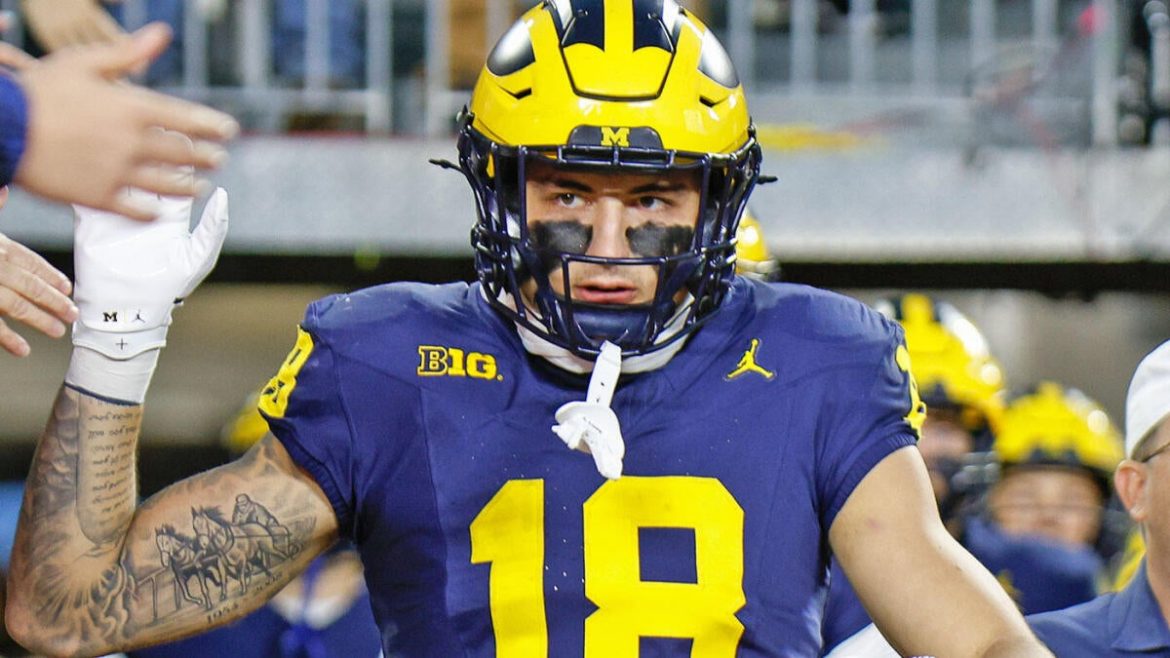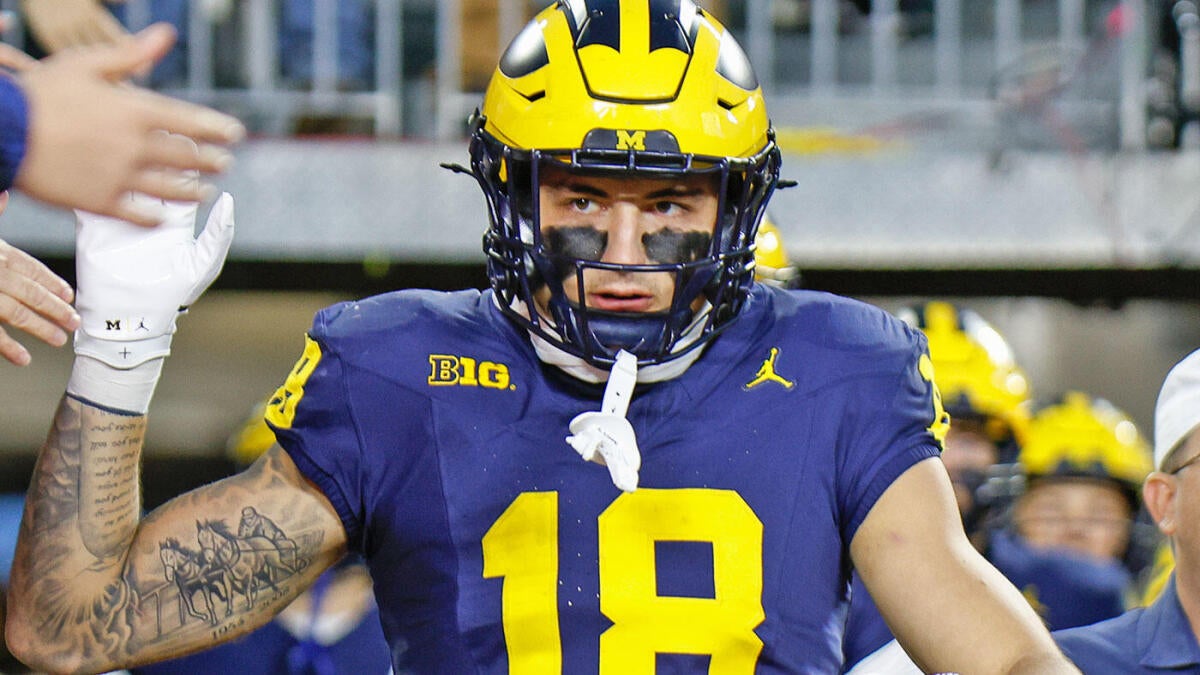Tight End Showdown: Colston Loveland vs. Tyler Warren in 2025 Dynasty Fantasy Football
The 2025 NFL Draft’s tight end (TE) class has sparked significant debate among dynasty fantasy football enthusiasts. At the forefront are Michigan’s Colston Loveland and Penn State’s Tyler Warren. Both prospects possess exceptional talent and share the distinction of being first-round picks—a rare status for tight ends—yet their contrasting styles, team landing spots, and perceived fantasy value fuel ongoing discussions about who deserves the crown as the rookie TE1.
Profiles at a Glance: Physical and Playing Strengths
– Tyler Warren (Penn State): Standing 6’5″ and weighing 256 lbs, Warren combines size, explosive athleticism, and an impressive blocking acumen often cited as the best among his draft class peers. His ability to serve as a dual-threat contributor—both as a critical blocker and a receiving weapon—makes him a versatile asset. Analysts praise his blend of size and power, and his effectiveness in run-blocking adds to longevity and multi-faceted team value.
– Colston Loveland (Michigan): Slightly taller at 6’6″ but a bit lighter at 248 lbs, Loveland is noted for his ability to lead his team’s passing attack, showcasing impressive route running, strong hands, and athleticism that translates into yards after catch (YAC). His game is often described as more dynamic in a receiving role, presenting matchup nightmares for defenses due to his size-speed combination.
Both tight ends are seen as “blue-chip” prospects, but their differing strengths position them uniquely for NFL roles and fantasy outcomes.
Draft Position and Landing Spot Impact
Loveland was selected 10th overall by the Chicago Bears, while Warren went 14th to the Indianapolis Colts. This difference holds strategic significance for fantasy managers:
– Chicago’s Situation (Loveland): The Bears’ quarterback situation and offensive system appear favorable for Loveland’s near-term fantasy production. Analysts like Matthew Berry highlight that Loveland’s draft capital, coupled with organizational stability and an offensive design tailored to maximize a dynamic tight end, tip the scales in his favor.
– Indianapolis’ Situation (Warren): Warren’s landing spot with the Colts presents a more uncertain quarterback situation, potentially limiting immediate fantasy upside despite his raw talent and blocking prowess. However, Warren’s “finishing piece” skill set resonates well with teams looking for YAC production and creative offense schemes, possibly granting long-term value.
These contextual nuances contribute to the evolving preference shifts among commentators—they initially favored Warren but have recently leaned toward Loveland thanks to draft developments and team fit.
Fantasy Implications and Rankings
Several sources and analysts have issued rookie TE rankings, indicating a tight, ongoing battle for the TE1 title in dynasty formats:
– Early Consensus & Shifts: Warren was initially the beginner favorite among analysts, mainly due to his projected 2024 productivity and perceived superior blocking. However, as draft outcomes unfolded and evaluators considered landing spots and draft capital (Loveland was drafted earlier with additional picks attached), Colston Loveland’s stock rose sharply, overtaking Warren in many rookie TE rankings.
– Ranking Variability: Rankings are context-dependent. Fantasy pros emphasize that the gap between Warren and Loveland is “close” and closely tied to what managers desire in a tight end—whether it’s consistent receptions, YAC upside, or blocking reliability. In tight end premium leagues, Warren’s reception upside remains compelling. Conversely, in standard dynasty leagues, Loveland’s target volume and offensive role give him a slight edge.
– Draft Range Consensus: Both tight ends are expected to be selected between picks 1.08 and 2.02 in 12-team rookie drafts, often running back-to-back due to their comparable perceived value.
Strategic Considerations for Dynasty Managers
– Positional Role and Usage: Warren’s blocking skill set may afford him a longer NFL career and a valuable role in run-heavy or balanced offenses. While this may translate into less flashy fantasy seasons initially, his ability to stay on the field and be a hybrid contributor is a plus in dynasty formats valuing longevity.
– Loveland’s Immediate Ceiling: Loveland is projected to be more of a receiving threat early on, with a potential to produce high fantasy points in standard and PPR formats quickly. His landing spot in Chicago augments his opportunity, making him highly desirable to managers targeting short-term value.
– Draft Capital as Signal: Analysts note that the Bears’ commitment with a top-10 pick plus extra draft capital to Loveland sends a meaningful signal of trust and potential opportunity. This contrasts with Warren’s spot, reflecting differences in team valuation that can affect fantasy production trajectories.
– Comparisons With Other Rookies: Both tight ends have been placed within their own tier alongside prospects like Harold Fannin Jr., but Warren and Loveland remain the front-runners for the 2025 tight end rookie class.
Concluding Thoughts: Choosing Your TE1
Deciding between Colston Loveland and Tyler Warren boils down to managerial preference—whether prioritizing immediate fantasy production or long-term, multi-dimensional value. Loveland’s superior landing spot and earlier draft position give him a tangible edge in rookie drafts, often earning him the “TE1” tag post-draft. Meanwhile, Warren’s physical attributes, especially his blocking excellence, and potential upside as a YAC weapon amplify his appeal for managers who envision a broader role or are willing to wait for breakout seasons.
For dynasty football participants, the tight end position in 2025 offers an intriguing coin flip, rich with strategic layers. Loveland’s blend of opportunity and skill currently places him slightly ahead, aligning with the bulk of expert rankings. However, Warren remains a formidable contender, especially in formats that reward blocking and versatile tight ends who endure the length of careers with steady roles.
—
Final Takeaway: Favored TE1 of the Class — Colston Loveland
Recent expert consensus and rookie draft outcomes favor Colston Loveland as the 2025 dynasty rookie TE1, primarily due to his advantageous landing spot, draft capital investment, and early fantasy opportunity. While Tyler Warren remains a top-tier tight end with a promising career outlook, dynasty managers seeking to maximize rookie drafts often lean toward Loveland to fulfill the tight end role in the near term.





